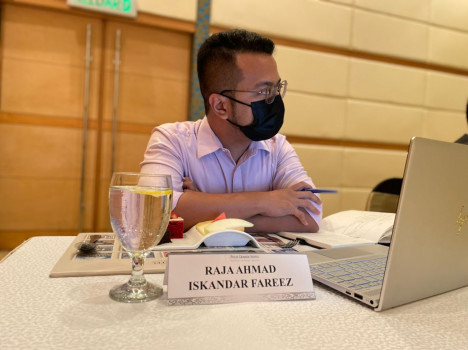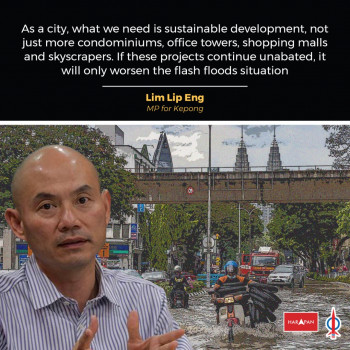by Erik Yee
The Star, the people’s paper. It has of late gained a reputation of not being as critical of the government as it once used to be, and those more senior among us will remember this well.
After Tunku Abdul Rahman retired as Prime Minister in 1970, the founding father spent several years in obscurity before becoming The Star chairman in 1974, then still a regional tabloid based in Penang.
The newspaper flourished under his leadership, giving impartial coverage to all sides of the political divide, highlighted issues that were important to the layman, and was a fearless critic of government wrongdoing, truly earning its moniker as “the people’s paper”.
Then along came a spider who decided that he could not take the heat, including Tunku’s Monday columns. In one fell swoop, the government detained 106 activists and Opposition politicians under the now repealed Internal Security Act (ISA).
Dubbed Ops Lalang, the crackdown in 1987 also saw the printing licenses of The Star, Sunday Star, Sin Chew Jit Poh, and Watan revoked under the unconstitutional Printing Presses and Publications Act (PPPA).
From then on, the shadow of Ops Lalang hovers above every newsroom in the country, and every journalist and editor began to self-censor to avoid landing their colleagues into trouble.
As if to rub salt in the wound, editors are now periodically summoned to the Home Ministry for “briefings” and be told how certain topics should be covered (or to not be highlighted at all). Step out of line, and editors are to explain themselves, sometimes to the Home Minister himself.
With the advent of the internet, which the government had promised to not censor, the online press managed to keep the government on its toes and is one of the driving forces in denying BN two-thirds majority in Parliament during the 12th and 13th General Elections.
The Star, although not nearly as open as it was 30 years ago, began to venture to the online medium as well and is noted to have relaxed its coverage since, even attempting to have DAP’s Serdang MP Ong Kian Ming to write columns for a while.
However, BN’s stranglehold on power is once again threatened and the heinous machinations of a corrupt government started clamping down on the online media as well.
Through the use and abuse of the Sedition Act, more than 100 of activists, journalists, and politicians have been arrested and charged in court since 2013 under the draconian British law, which was designed to eliminate any opposition to the government via broadly defined provisions.
Now, The Edge has been suspended for three months due to articles that claimed individuals closely linked to 1Malaysia Development Berhad (1MDB) and Najib have defrauded Malaysia of billions of Ringgit.
The Prime Minister himself, too, was found to have RM2.6 billion deposited into his account by “donors”. Who are these supposed donors and what is the money for? These questions have yet to be answered.
While the press is doing its best to hold Najib to account, he is also doing his darndest to silence any naysayers via the Home Ministry and appointing a Cabinet full of yes men.
Ops Lalang 2 is already upon us, and the government is once again threatening to turn a semi-democratic Malaysia into a full-fledged dictatorship, driving the country further into ruin as shown by the rapidly falling value of the Ringgit.
We now stand upon the precipice where the very future of Malaysia could be decided in the coming months, and every man and woman must play their part.
As history had shown, press freedom and the freedom of information is directly connected to the state of democracy, and the people must rise to meet every attempt to curtail these freedoms.
Tunku Abdul Rahman, before his passing in 1990, made an impassioned plea to Malaysians, calling for all to think critically about current issues and to follow one’s conscience on such matters.
If he is still alive now, the good Tunku would fight all attempts to curtail our freedom tooth and nail. The question is, will you join him?
Read related story: Press freedom (or not) over the years
– The Rocket




